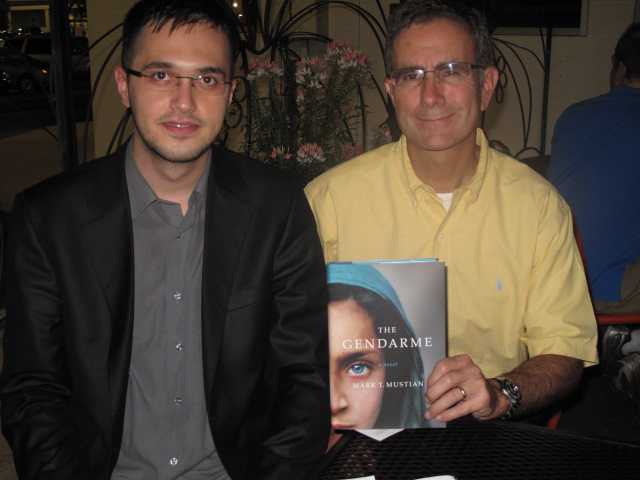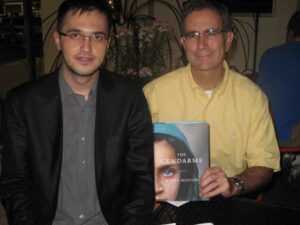By Alexander Christie-Miller for Southeast European Times in Vakifli — 12/05/11
”]On the surface, it’s hard to see why anyone would leave Vakifli. Perched on a hill overlooking the sea, the village is a peaceful, idyllic spot, its clean Mediterranean air infused with the scent of orange blossom.
But its 135 inhabitants have a special reason to keep their tiny community alive: theirs is the last Armenian village in Turkey to survive the devastating massacres during World War One in which as many as 1.5 million Armenians were killed.
As with many other villages across Turkey, the decline of income from agriculture coupled with the temptations of urban life mean Vakifli is inexorably shrinking.
“We are very few, and we are getting old,” said Berc Kartun, the village’s mayor. “All the young people leave. Young people finish university and now they’re looking for something else to do.”
Vakifli owes its unique survival to a mixture of bravery and luck. In 1915, the Ottoman Empire’s ‘Young Turks’ government ordered that all Armenians in Turkey be deported to the Syrian desert.
For most, this was a death sentence, and the inhabitants of Vakifli and five other villages in Hatay province that now lie by the Syrian border armed themselves and took to the mountains.
Around 5,000 people held out for 53 days on the summit of Musa Dagh, which overlooks Vakifli, resisting Ottoman forces’ attempts to dislodge them.
Running low on food, they caught the attention of a passing French warship by hoisting a banner, and were rescued and taken to Allied refugee camps before returning at the end of the war when Hatay was under French mandate.
When the province returned to Turkish rule in 1939, five of the villages opted to migrate to Lebanon, with only Vakifli remaining.
“We’re proud of this history,” said Panos Capar, a 79-year-old orange farmer. “We fought in the past, and now everybody has to accept us.”
Now they are fighting again. Over the past 15 years the population declined from around 180 people to its present number, with many moving to Istanbul.
It is a picture reflected across Turkey. In 1990, about half the country’s population was classified as rural, but this figure had dropped to just below 32% by 2008.
Oranges are Vakifli’s main crop, and in 2004 a co-operative was established. All producers in the village agreed to start growing organically to try to boost profits. A small village stall sells locally produced wine, liquors, preserves and soap to a steady trickle of tourists.
“I think we will survive,” said Capar. “Young people are planning to make investments here to attract tourists — a restaurant and other things — but it’s step by step and it won’t happen at once.”
Vakifli’s residents bear the added burden of living in a country deeply uneasy with its religious and ethnic heritage. Starting in 1915, the large Armenian minority in Anatolia was massacred and almost entirely driven out.
More than 20 countries recognise the killings as genocide, but Turkey fiercely disputes the label, saying many Turks were also killed and there was no intention to exterminate the Armenians.
“The culture of the new Turkish state was based on the denial of diversity,” said Orhan Kemal Cengiz, a lawyer and prominent human rights activist.
“They were trying to create a homogenous society, which didn’t reflect the reality of Anatolia… Because Turkey has never confronted its past we haven’t been able to get rid of racist tendencies.”
But in Hatay, which has a rich ethnic mix of Arabs, Turks, Alawi Muslims, and different Christian denominations, Vakifli’s residents say they feel at home.
“In Hatay there are many ethnicities and we have been living here a long time,” said Cem Capar, a 33-year-old veterinarian who was born in Vakifli but now lives in the nearby town of Samandag.
This content was commissioned for SETimes.com.
via Turkey’s last Armenian village (SETimes.com).








